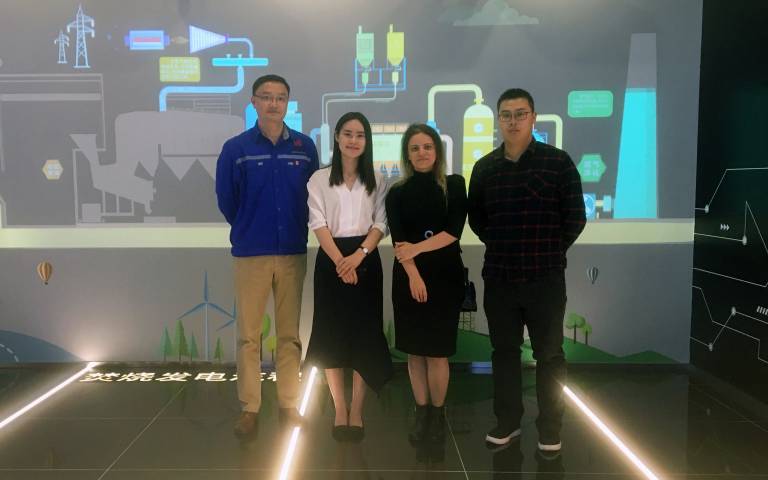UCL and Shanghai Jiao Tong University: Establishing a mobile education hub for sustainable islands
Researchers from UCL The Bartlett and Shanghai Jiao Tong University (SJTU) are creating new ways of cleaning up island ecosystems

20 November 2019
Associate Professor Catalina Spataru (UCL Energy Institute) used the Global Engagement Funds to further her collaboration with colleagues in China to tackle plastic pollution by establishing a new ‘mobile education hub’.
Catalina is the Head of the Islands Laboratory at UCL, which studies innovative solutions to tackle climate change and disaster risk reduction for island nations around the world.
Its multidisciplinary approach sees researchers from a range of disciplines come together to discuss possible solutions – from economics, mathematics and engineering, to computer science, architecture and anthropology.
Cleaning up ecosystems at the source
A key goal for the new hub is to deliver a conference exploring existing and innovative ways to clean up and keep clean ecosystems at the source: via rivers leading to coastal and marine systems.
Dr Xiaojing Lv (Shanghai Jiao Tong University, China) had visited Catalina at the Islands Laboratory earlier in the year to take part in a workshop focused on circular economy and waste.
Building on their common interests, they agreed to work together to organise an initial conference in London, followed by one on an island such as Chongming in China.
Catalina said: “Plastic pollution has become one of the most pressing global environmental issues, adversely affecting terrestrial, coastal and marine man-made and natural ecosystems.
“The idea of this grant was to establish a mobile education hub for sustainable islands at UCL, including workshops, presentations and art exhibitions. This would mobilise young people to discuss scientific solutions, together with the policies and regulations that are needed, and would raise awareness, enhance environmental education, and turn to action.”
Establishing a strong collaboration
Catalina’s collaboration with colleagues at SJTU spans two topics – one on “waste to energy” and one on the trade-offs needed to be made between resource use (such as energy, water and land) and the impact on the environment.
She visited Xiaojing in October 2019, together with two of her researchers.
“The support offered by the Global Engagement Funds have helped significantly to establish a strong collaboration with colleagues at SJTU,” added Catalina.
“As part of the visit we went to see a microgrid in Chongming island, a waste-to-energy power plant and visited the Shanghai government building. We learnt about the history of Shanghai, which has been transformed from a fishing village into a modern, hyperconnected megacity.
"We also took part in a workshop on low carbon technologies and environment, to discuss further collaboration. We are currently working on a paper together on how to transform islands into circular hubs combining different low carbon technologies.”
- Find out more about the UCL Islands Laboratory
- Read more about UCL in China
- Find out how to apply for the Global Engagement Funds
 Close
Close

